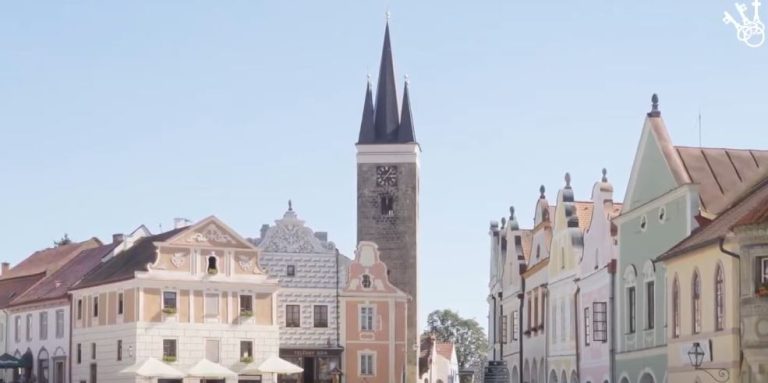By using concepts that feel both personal and systemic—like gardeners pruning dormant trees to make them bloom again—Divine Renovation UK is changing the way parishes think about mission and upkeep. This ministry has remarkably led more than 500 parishes in the UK toward greater engagement, new vitality, and a revitalized purpose, all while drawing inspiration from Father James Mallon’s original vision.
The model is fundamentally founded on three pillars: the Holy Spirit is invited into every aspect of parish life, not just intangible moments; leadership is shared and empowered across teams rather than being reserved for clergy; and evangelization becomes the guiding light rather than an afterthought. Despite being deeply theological, this framework is presented in a very understandable and useful way. It’s similar to adding a contemporary engine to a vintage car; the performance changes but the form stays the same.
| Name | Divine Renovation UK |
|---|---|
| Type | Catholic Ministry for Parish Renewal |
| Active Since | 2019 (UK presence from 2016 globally) |
| Executive Director (UK) | Hannah Vaughan-Spruce |
| Mission | Guide parishes from maintenance mindset to mission-focused life |
| Focus Areas | Leadership coaching, evangelization, parish transformation |
| UK Office | 5-7 Cromwell Road, London, SW7 2HR, United Kingdom |
| Website | https://divinerenovation.org/united-kingdom |
| Income (2023) | £244,367 |
| Expenditure (2023) | £205,639 |
| Staff | 1 paid staff (£70k–£80k), 20 volunteers |
| Charity Number (UK) | 1189356 |
When parishes first get in touch with Divine Renovation, they frequently talk about a maintenance phase that includes declining congregations, disengaged ministers, and flat attendance. Those same parishes start to uncover active threads of mission by working with DR coaches, who are experienced mentors who comprehend the complex intersection of faith and culture. They plan outreach activities, develop teams of lay leaders, and establish settings where faith is lived rather than merely expressed.
The movement’s leader in the UK, Hannah Vaughan-Spruce, strikes a balance between strategic insight and pastoral warmth. For parishes torn between embracing new growth and maintaining tradition, her presence feels especially helpful. She assists Church leaders in making the shift from administrative survival to mission-minded vitality with cool clarity. Under her direction, that change is made in a deliberate and gentle manner, even though it can feel risky—like changing course in the middle of a journey.
Innovation in digital technology has been essential. Through webinars, online workshops, and virtual coaching, Divine Renovation UK has experienced remarkable growth in recent years. DR’s shift to digital made sure that momentum was maintained when the pandemic put a stop to face-to-face meetings. With voices from the US, France, South Africa, and other countries, their international “Parish Conversations” series provided glaringly obvious instances of renewal in action. These conversations quietly spread their influence well beyond the boundaries of the parish, much like ripples across a pond.
Events held on-site also offer a catalytic environment for rejuvenation. Clergy eager to learn more about the workings of mission-focused parishes recently convened a conference called Leading Parishes in the Apostolic Age. The event created an energizing atmosphere like a spark lighting dry tinder by fusing theological reflection with grassroots practicalities. Responses were overwhelmingly positive, with many participants already organizing minor changes that will have a big influence on community involvement.
With the modesty of a grassroots movement, Divine Renovation UK’s financial model is fully donor-funded and not dependent on institutional Church funding. It made £244,367 in 2023 and spent £205,639, which was used for staffing, coaching, and events. The ministry’s capacity to assist underserved parishes without placing a financial strain on Catholic leadership budgets has significantly increased as a result of that strategic allocation.
The UK branch, which has a small staff of one paid employee and twenty volunteers, many of whom provide coaching, event planning, or fundraising assistance, is a registered charity (No. 1189356). That structure prioritizes mission outcomes while keeping overheads low. According to one parish priest, the ministry, despite its modest size, felt very dependable—more like a dependable friend than a showy spectacle.
These figures are given texture by firsthand accounts. Salford’s Fr. Emmanuel described how taking part in DR coaching led to a level of engagement he hadn’t witnessed in years. Outreach grew, parishioners resumed volunteering, and even the church’s prayer life became more profound. For him, change felt more like oxygen returning to his breath-starved lungs than a complete revolution.
Divine Renovation UK provides more than just practical guidance in a cultural environment where church attendance is dropping and younger generations frequently feel excluded—it offers hope. DR UK is resisting retreat by reestablishing mission as the default stance of parish life through strategic alliances with dioceses and ministries that share similar values.
There are difficulties. Committee structures and legacy mindsets are examples of maintenance habits that take time to break. However, parishes start reorienting gradually when they participate in the DR process, which includes small group communities, weekend Alpha courses, and outreach teams led by laypeople. That change is similar to going from black and white to color; it still has a church-like appearance but is lively, intentional, and alive.
The future is exciting. The movement is growing, with over 5,100 priests connected through DR’s programs and over 46,000 participants worldwide. The next steps include improving coaching frameworks, holding more in-person events in the UK, and growing mentoring networks. The next five years may see a widespread resurgence of parish life throughout England if present growth trends continue.


